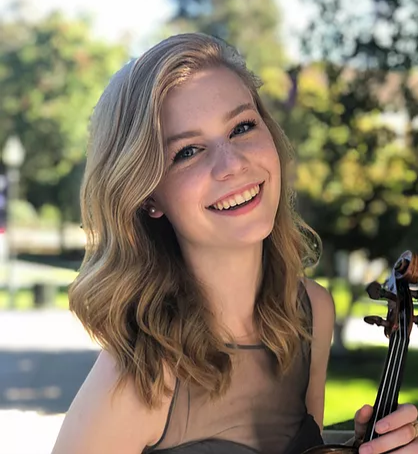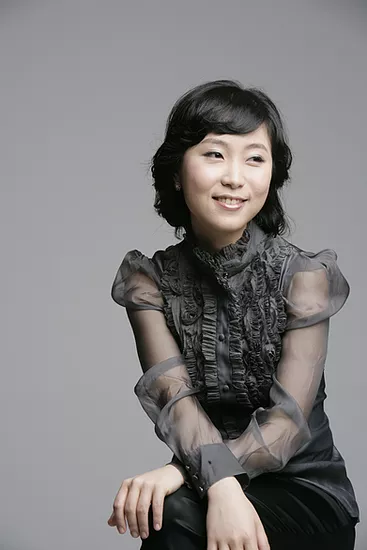Music à la Carte: Echoes That Remain: Week 3 Review (2021)
- John Vandevert

- Jan 30, 2021
- 4 min read
It was 1853 and Robert Schumann had just met Johannes Brahms, and they quickly became enamoured with each other, the former calling the latter the ‘darling of the Muses’, while the latter called the former his ‘Revered Master.’ However, this sacred companionship which had just been germinated was to be quickly extinguished after only four, short months. On February 27, 1854, Robert would attempt his first attack on his life, thus issuing the start of a battle unable to be reversed, culminating in the premature death of Germany’s ‘ultimate romantic’ only two years later [1856]. It was during this time when Brahms and Clara became inextricably close(er), and subsequently what began as a friendship became something far greater. Brahms wrote to a friend “I often have to restrain myself forcibly from just quietly putting my arms around her,” while Clara had privately written, “It is not his youth that attracts me...it is the fresh mind, the gloriously gifted nature, the noble heart, that I love in him.” Indeed, they loved with a closeted passion tantamount to Galatea’s undying devotion to her Acis, Daphnis’s commitment to his virginal Chloe, and even Tristan’s deathly devotion to Isolde, but as fate brought them together, fate would also separate them. They embarked on a voyage to Switzerland in the hopes of marriage, and instead of marriage they left with despair, Clara recounting “I feel as if I just left a funeral.”
Brahms and Clara never remarried, and although they remained close, they would never love another as deeply as they had each other. Knowing their tragic development, Kallos Chamber Music Series chose to punctuate their ‘Echoes that Remain’ concert series with Brahms’s Piano Quartet No.3 [Op.60], written right in the heat of Schumann’s artistic martyrdom, made heavier with Cupid’s obstinate arrow puncturing the bosom's of the two lovers. Harnessing their natural, ensembled synergy one last time in evocative hues and memorious intonations which seek to convey the universal conflict of man, ‘what should I do,’ I was transported via the ‘recreation of life in sounding’ into the dichotomous, vacillating interiority of a Brahms caught within the grasp of merciless uncertainty. Life and death, longing and rapture, to pursue or not to pursue; via only four movements, I was introduced to Violinist Kate Arndt, the personification of Clara’s doleful status as a woman stuck within the confines of convention, Violist Jordan Bak, the voice of Robert Schumann who suffered at the hands of destiny but produced eternal beauty, and Cellist Josh Halpern, the penetrating, embodiment of Brahms and his worrisome apprehensions. With dewy gaze, I truly ‘heard’ Brahms the person and not only the composer, this process of negating the finality of silence [death] nurtured by these musicians impeccable alignment with the infinite Other for whom music is but a conduit for something far greater than material sound or baseless musical showmanship. Wrapped in the virtuosic resplendences of Pianist Min Young Kang, quite possibly the voice of our celestial Master themselves or perhaps, more accurately, the exemplification of the disquiet, Sturm und Drang undulations of a mind incapable of formulating a rational next step, only after hearing the entire work did I realize what I had was privy to and was allowed to experience.
Movement 1) I love her and shall never love another as long as I live.
Movement 2) But I am not finished living yet, I cannot give in to sorrow.
Movement 3) However I shall never forget you Robert, but my love Clara I shall never stop loving you.
concluding with...
Movement 4) So this is my fate then? To suffer a loss and then be bestowed a fierce love which drives me also to mania?
[Johannes Brahms, Piano Quartet No.3, Op.60]
The Kallos Chamber Music Series is Noah’s white dove, bringing back the olive leaf to which humanity is to be restored, in lue of an olive leaf choosing the global intermediary, music by which to extol their healing harmonicity. What Min Young Kang has created is a portal for those within the enclosure of the home, separated from ‘live’ music almost now for one whole year, where one can, at least for the duration of a performance, offset the growing messages of fear and agitation built up through discursive media of various deviations. Their three performances via 'Echoes that Remain' have expanded and strengthened my appreciation of the role music plays in culture and the many opportunities available to us to have the heart-beat raised and the senses engaged to the sounds of sonic voluminosity. B. Asafiev had said that music was “the reincarnation of the psychic state in the art of sound”, and that try as we might for regulation, music’s true origin is life as it unfolds in its plurality. K.C.M.S has truly cemented their legacy with this final performance, and thus I call them a ‘symphonic’ organization, meaning a group who takes their musical gestures from life and not the page, who unfalteringly amplifies the reality of the human condition, and who does not shy away from ‘spiritually-driven realization of everything that sounds’ for even a second, in this case an eighth note.
My life is richer for having heard them play.
The Kallos Chamber Music Series is an instrumental collective based in New Haven, CT. and thus, if you are able to financially contribute to the continuation of such activities and much more, please check out their website at Kalloschambermusicseries.com
Appreciation to The Kallos Chamber Music Series for providing me the ability to review!
[PC: Kallos Chamber Series website, personal photography via individual website]












Comments